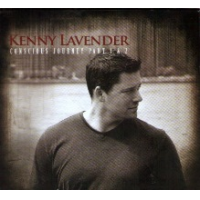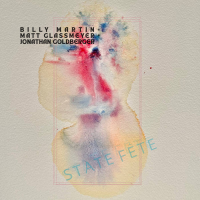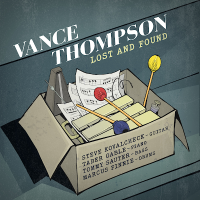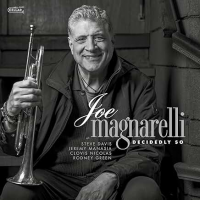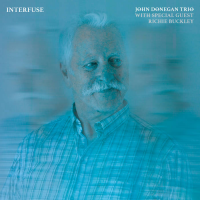Home » Jazz Articles » Bailey's Bundles » The Led Zeppelin Papers: Led Zeppelin, Deluxe Edition
The Led Zeppelin Papers: Led Zeppelin, Deluxe Edition
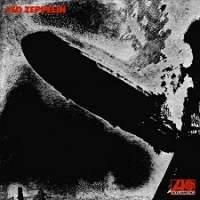 Led Zeppelin
Led Zeppelin Led Zeppelin, Deluxe Edition
(Atlantic Records)
1969/2014
The popular formula in England in this, the aftermath era of such successful British bluesmen as Cream and John Mayall, seems to be: add, to an excellent guitarist who, since leaving the Yardbirds and/or Mayall, has become a minor musical deity, a competent rhythm section and pretty soul-belter who can do a good spade imitation. The latest of the British blues groups so conceived offers little that its twin, the Jeff Beck Group, didn't say as well or better three months ago, and the excesses of the Beck group's Truth album (most notably its self-indulgence and restrictedness), are fully in evidence on Led Zeppelin's debut album. —John Mendelsohn, Rolling Stone March 15, 1969
But the blues have always been at the heart of LZ's music, sometimes competing fiercely with Jimmy Page's Tolkien fetish and Celtic affectations, but always prevailing in the end with something representing a major evolution within the genre. The blues is the thread binding the best LZ output together through seismic shifts in musical focus. When Led Zeppelin was released January 12, 1969, it sonically detonated an explosion that is still felt, almost un-attenuated today. And is started with the two brutally struck E major chords introducing "Good Times Bad Times." By the standards of his guitar contemporaries, Page's talent might have been considered marginal to good. But his ear was exceptional. Page's song arrangements are as intricate as they are dramatic and his production and mixing were years ahead of their time. Glyn Johns, who engineered for the "big four" (LZ, Beatles, Rolling Stones, Who) sanded every rough edge, making Led Zeppelin a sonically superior recording when compared with many of its near neighbors. Page's lead guitar break in "Good Times" is a ferocious statement of intent that redefined the blues rock guitars of Eric Clapton and Jeff Beck producing something wholly new that would lead to the likes of Slash, CC Deville and Mick Mars, not to mention Tracii Guns.
A similar rock breakout is experienced on "Communication Breakdown" with its driving opening riff and thundering percussion by John Bonham. Robert Plant's voice at this stage is a phenomenon becoming a myth of power and sex. But that is getting ahead of ourselves. "Babe I'm Gonna Leave You" in 1969 was a sophisticated eutectoid of border guitar, flamenco single notes, slurring blues vocals and a pile-driving rhythm section digging a hole to the center of Middle Earth. "Babe I'm Gonna Leave You" was the thunderclap in a musical hurricane, music aurally shown through Page's prism of genius focusing its concentrated light on the soul of Robert Johnson.
The much fussed over "You Shook Me" that Page purloined from Willie Dixon for so many years, ironically served as the introduction to the blues for a legion of white, middle class punks who scarcely knew who Muddy Waters was, much less Willie Dixon. It is the electric blues at its most elemental: a straight 12-bar blues, played with a railroad iron beat bassist John Paul Jones does double duty on organ while Plant plays an impressive mouth harp. I think, even in the day, that this music was a bit more substantial than that made by Mendelsohn's, "excellent guitarist who...has become a minor musical deity, a competent rhythm section and pretty soul-belter who can do a good spade imitation." I would further argue that Plant made no such efforts to imitate an African-American vernacular, rather he sowed new fields of rock vocals with Rod Stewart and Roger Daltrey. "You Shook Me" was the future.
Poor "Dazed and Confused," originally stolen from Jake Holmes, was as doomed as "Stairway to Heaven" to become its own parody. A cool song, to be sure, at least for the first thousand listenings. "Dazed" might have been a better vehicle for the period Black Sabbath, had that band had the musical precision and refinement. As it is It became a concert staple for Page to dick around with all violin bows forever and ever ad nauseum. As far as "Dazed" is concerned, Page should have kept it in the bathroom, with the door closed. "Your Time is Gonna Come" is something else altogether. Jones plays a Bach Choral before Page slips in the swamp with his acoustic guitar and Plant sings with a Celtic/Southern soulfulness that is bright and revealing. It is an extension and ultimate completion of was started with "Babe I'm Gonna Leave You." This was the germ of what LZ would become.
"Black Mountain Side" reveals Page as the earthy king of the pull-off and string bend, summoning all of English pastoral and American folk music. Willie Dixon's "I Can't Quit You Baby" refines the blues started with "You Shook Me" into a finely crafted art that is brought to a cataclysmic conclusion on the driving "How Many More Times" (Lifted directly from Howlin' Wolf's "How Many More Years"). Represented in these three blues pieces is the genre mutation initiated by LZ, one that would continue, more or less successfully, until the end.
But to make this a "Deluxe Edition," something novel had to be added. LZ's Paris show at the Olympia, October 10, 1969 is one of the most important, if not the most important bootlegged performance of the band. It is a splendid and just inclusion here, showing the band in all of its high-wattage glory. "Good Times Bad Times" and "Communication Breakdown" start the performance with a solid one-two punch that dissolves into a searing "I Can't Quit You Baby." The band previews a couple of Led Zeppelin II's tunes before the album was released twelve days after this show. "Heartbreaker" is definitive. "White Summer/Black Mountain Side" foreshadow Pages guitar work to come on House of the Holy and later.
"You Shook Me" begins as a ragged barrelhouse anthem propelled by Jones' solid bass playing coupled with Bonham's signature deuterium beat. The band deconstructs the studio version by melting it into its basic elements, reconstructing the same with more heat. Page plays both standard and slide guitar, lighting the way to come for the band. The molten blues of "Moby Dick" early on provided Bonham his showcase, before he became bloated boredom in the late 1970s. "How Many More Times" takes the band out as violently as they entered, loose and earthy, staring straight into the '70s.
The blues was always at the heart of all LZ did. The band was well versed in the blues, Plant possessing an impressive depth and breadth in his knowledge of competing styles and methods. The evolution of the genre here is impressive, with three very different performances demonstrating the richness of the band's vision. While it may be revisionist reconsideration, Led Zeppelin may well be the finest debut recording of the "classic" rock (whatever that is) era.
Tags
About Led Zeppelin
Instrument: Band / ensemble / orchestra
PREVIOUS / NEXT
Support All About Jazz
 All About Jazz has been a pillar of jazz since 1995, championing it as an art form and, more importantly, supporting the musicians who make it. Our enduring commitment has made "AAJ" one of the most culturally important websites of its kind, read by hundreds of thousands of fans, musicians and industry figures every month.
All About Jazz has been a pillar of jazz since 1995, championing it as an art form and, more importantly, supporting the musicians who make it. Our enduring commitment has made "AAJ" one of the most culturally important websites of its kind, read by hundreds of thousands of fans, musicians and industry figures every month.




